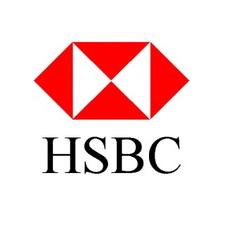 A 335-page Senate report says that executives at HSBC and regulators at the Office of the Comptroller of the Currency ignored warning signs and failed to stop illegal behavior by Mexican drug cartels looking to get cash back into the United States, by Saudi Arabian banks that needed access to dollars despite their terrorist ties, and by Iranians who wanted to circumvent United States sanctions. The report indicates that the problems at HSBC, Europe’s largest financial institution, are indicators of a larger issue of illegal money flowing through international financial institutions into the United States.
A 335-page Senate report says that executives at HSBC and regulators at the Office of the Comptroller of the Currency ignored warning signs and failed to stop illegal behavior by Mexican drug cartels looking to get cash back into the United States, by Saudi Arabian banks that needed access to dollars despite their terrorist ties, and by Iranians who wanted to circumvent United States sanctions. The report indicates that the problems at HSBC, Europe’s largest financial institution, are indicators of a larger issue of illegal money flowing through international financial institutions into the United States.
The report was created from information acquired during a yearlong investigation by a Senate subcommittee, the Permanent Subcommittee on Investigations. The failures occurred at many points between 2001 and 2010. HSBC executives are expected to apologize for failures in the bank’s internal controls and said in a statement that “we will apologize, acknowledge these mistakes, answer for our actions and give our absolute commitment to fixing what went wrong.”
The bank also disclosed that the issues with money laundering are being investigated by the Department of Justice and could lead to criminal charges and considerable fines. Analysts expect that these fines could reach $1 billion.
Senator Carl Levin, a Democrat from Michigan who leads the subcommittee, said, “Banks that ignore money laundering rules are a big problem for our country. Also troubling is a bank regulator that does not adequately do its job.” Mr. Levin said that HSBC had promised to fix similar issues in the past and failed. He said, “While the bank is saying all the right things, and that is fine, it has said all the right things before.” Senator Levin called HSBC’s compliance culture “pervasively polluted for a long time.”
Mr. Levin said that wrongdoing in the financial sector has been exacerbated by the ineptitude of government regulators. Particularly harsh criticism has been levied at the Office of the Comptroller of the Currency for showing too much deference to the banks it regulates. Mr. Levin said, “As long as a bank just sees that it is going to be dealt with kid gloves, I think we are going to continue to see these shortfalls that have been so endemic.”
